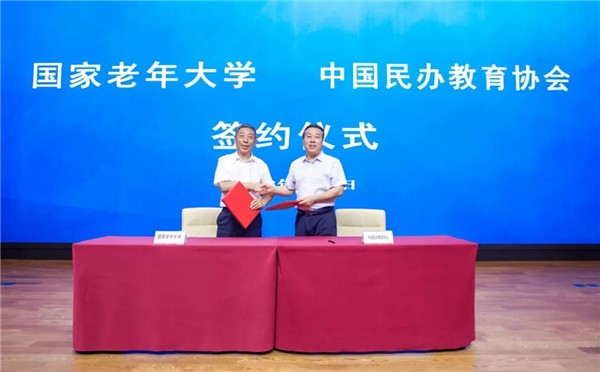 In order to further promote the thorough implementation of the thematic education campaign focused on studying and implementing Xi Jinping Thought on Socialism with Chinese Characteristics for a New Era, and to carry out the directive issued by Minister Huai Jinpeng of Education regarding harnessing the educational system's capabilities to support the development of the Seniors University of China (SUC), a meeting was convened by the SUC and the China Association for Non-Government Education (CANGE) on 17 June 2023. The purpose of the meeting was to initiate the establishment of seniors universities within non-government universities, fostering cooperative development between the two entities. During the meeting, both parties formally signed a cooperation agreement.
In order to further promote the thorough implementation of the thematic education campaign focused on studying and implementing Xi Jinping Thought on Socialism with Chinese Characteristics for a New Era, and to carry out the directive issued by Minister Huai Jinpeng of Education regarding harnessing the educational system's capabilities to support the development of the Seniors University of China (SUC), a meeting was convened by the SUC and the China Association for Non-Government Education (CANGE) on 17 June 2023. The purpose of the meeting was to initiate the establishment of seniors universities within non-government universities, fostering cooperative development between the two entities. During the meeting, both parties formally signed a cooperation agreement.
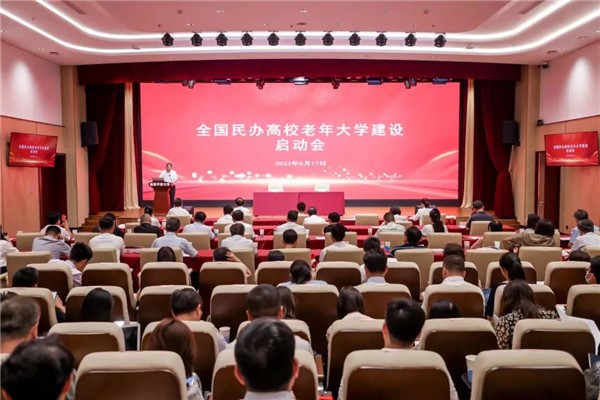
Dong Zhenhua, the head of the Higher Continuing Education Division within the Department of Vocational and Adult Education under the Ministry of Education (MOE),along with Liu Chen, the deputy secretary of the Party Committee of the Open University of China (OUC, also known as SUC), Liu Lin, the vice president of CANGE, and representatives from 95 non-government universities, as well as some mid-level officials from OUC (SUC), attended the event.

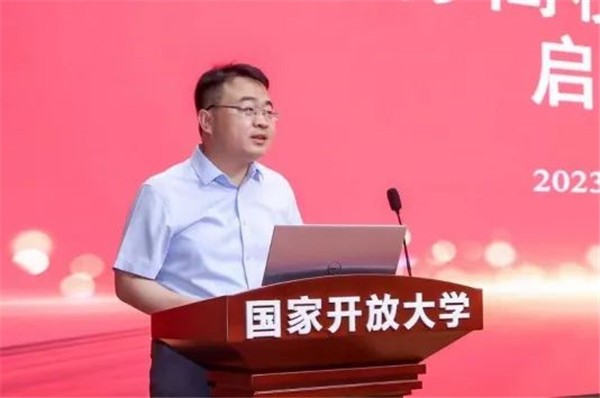
Dong Zhenhua, head of the Higher Continuing Education Division of the Department of Vocational and Adult Education under the MOE
Dong Zhenhua emphasized in his speech that the organisation of this meeting to initiate the establishment of seniors universities within non-government education marks a crucial milestone following the inauguration of the SUC. He stated that it represents a significant step in implementing the directives set forth by the MOE Leading Party Group, which calls for harnessing the collective strength of the entire education system to promote the development of the Seniors University of China. Dong also highlighted that this initiative serves as a noteworthy measure to foster collaborative innovation between non-government education and elderly education, opening up new avenues and pathways for development.
Given China's population characterized by sub-replacement fertility and aging, as well as regional variations in population growth and decline, Dong stressed the importance of fully comprehending and addressing the new demographic landscape. He emphasized the need to support China's modernization through the high-quality development of the population and to actively respond to population ageing by implementing a national strategy. Dong underscored that elderly education plays a vital role in establishing an education system that caters to lifelong learning for all, serving as a major undertaking in tackling population ageing and enhancing the quality of life and value for senior citizens.
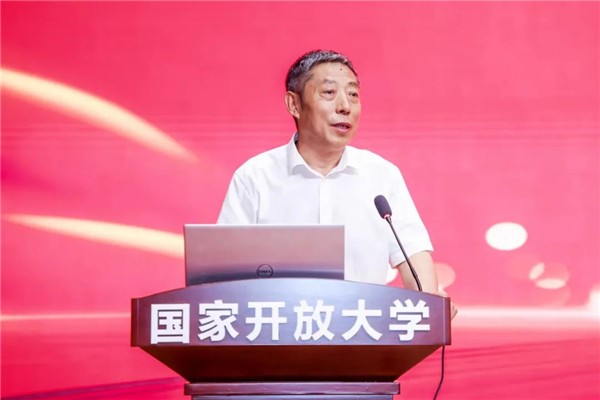
Liu Chen, deputy secretary of the OUC (SUC) Party Committee
Liu Chen emphasized that shouldering the national responsibility of addressing population aging is a key initiative aligned with the call to promote digitalization in education, as proposed in the report delivered at the 20th National Party Congress. It is also a new requirement set forth by the MOE Leading Party Group to establish China as a leading country in education, a nation that prioritizes learning, and a Party that fosters a culture of continuous learning. Presenting his proposal, Liu outlined the following steps to develop elderly education:
Firstly, it is essential to continue exploring and finding practical solutions to ensure the sustainable development of elderly education. Secondly, there is a need to expedite the signing of agreements for piloting the establishment of seniors universities within non-government universities. Thirdly, special attention must be given to the work of elderly education, integrating the development of seniors education into the fourteenth five-year plan of each university. This integration should include provisions for specialized institutions, personnel, and funding to support the initiative.
Liu expressed his hope that elderly education would become a new focal point for the MOE in implementing the guiding principles outlined in the 20th National Party Congress. Furthermore, he believed that it would serve as a distinguishing feature for the new business development of CANGE, the SUC, and all non-government universities. He emphasized the importance of joint efforts from all stakeholders to achieve these goals.
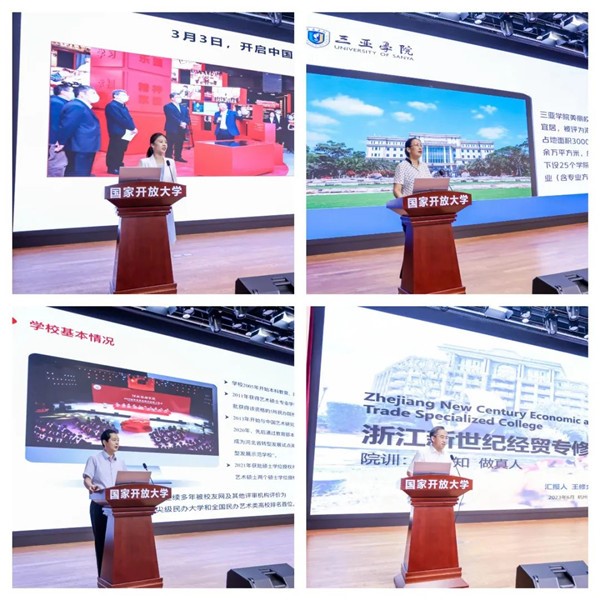
Liu Caimei, the vice dean of the OUC School for Older Adults, Wang Dan, the vice president of the University of Sanya, Wang Xichao, the executive vice president of Hebei Institute of Communications, and Wang Xiujin, the vice president of Zhejiang New Century Economic and Trade Specialized College, provided introductions on the SUC and shared insights into the operations of their respective non-government universities, along with their thoughts on developing seniors universities.
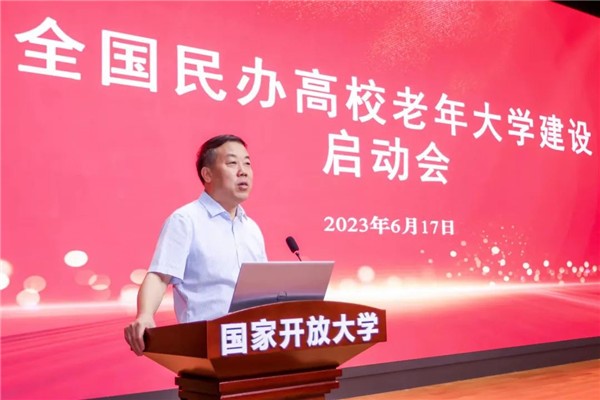
Liu Lin delivered a speech on behalf of CANGE, highlighting the significance of the meeting aimed at initiating the establishment of seniors universities within non-government universities in China. He emphasized that this step represents a crucial advancement for non-government universities to strategically engage in lifelong education through systematic industrial organisation for the first time. Furthermore, he emphasized that it serves as an important measure for non-government universities to proactively plan, demonstrate initiative in their work, shoulder responsibilities boldly, and contribute to the overall development of lifelong education.
To propel the progress of elderly education, Liu suggested that non-government universities should prioritize accelerating pilot explorations. This entails selecting the first batch of pilot universities promptly to delve into areas such as making disciplines, education, and teaching more elderly-friendly, achieving deep integration of online and offline modes, and fostering innovative development mechanisms. Additionally, Liu emphasized the importance of top-level design, advocating for pilot experiences in establishing systems for seniors universities and developing standards. He also emphasized the need to establish new collaborative mechanisms with the SUC, while innovating approaches for CANGE to effectively support the construction of seniors universities within non-government universities.
CANGE also organised a round-table meeting focused on the development of non-government universities and elderly education. During the meeting, participants engaged in further discussions and exchanges regarding the construction of seniors universities within non-government universities.
By OUC School for Older Adults